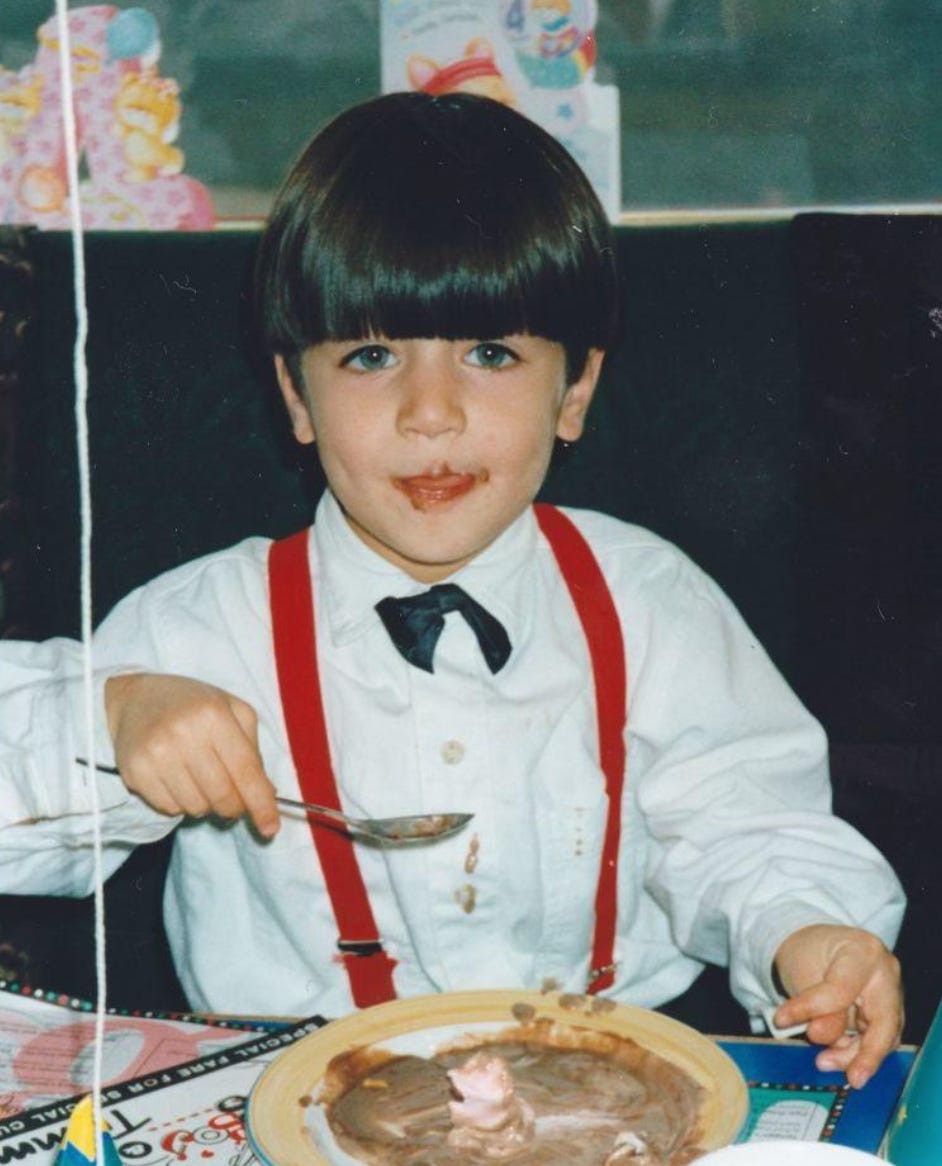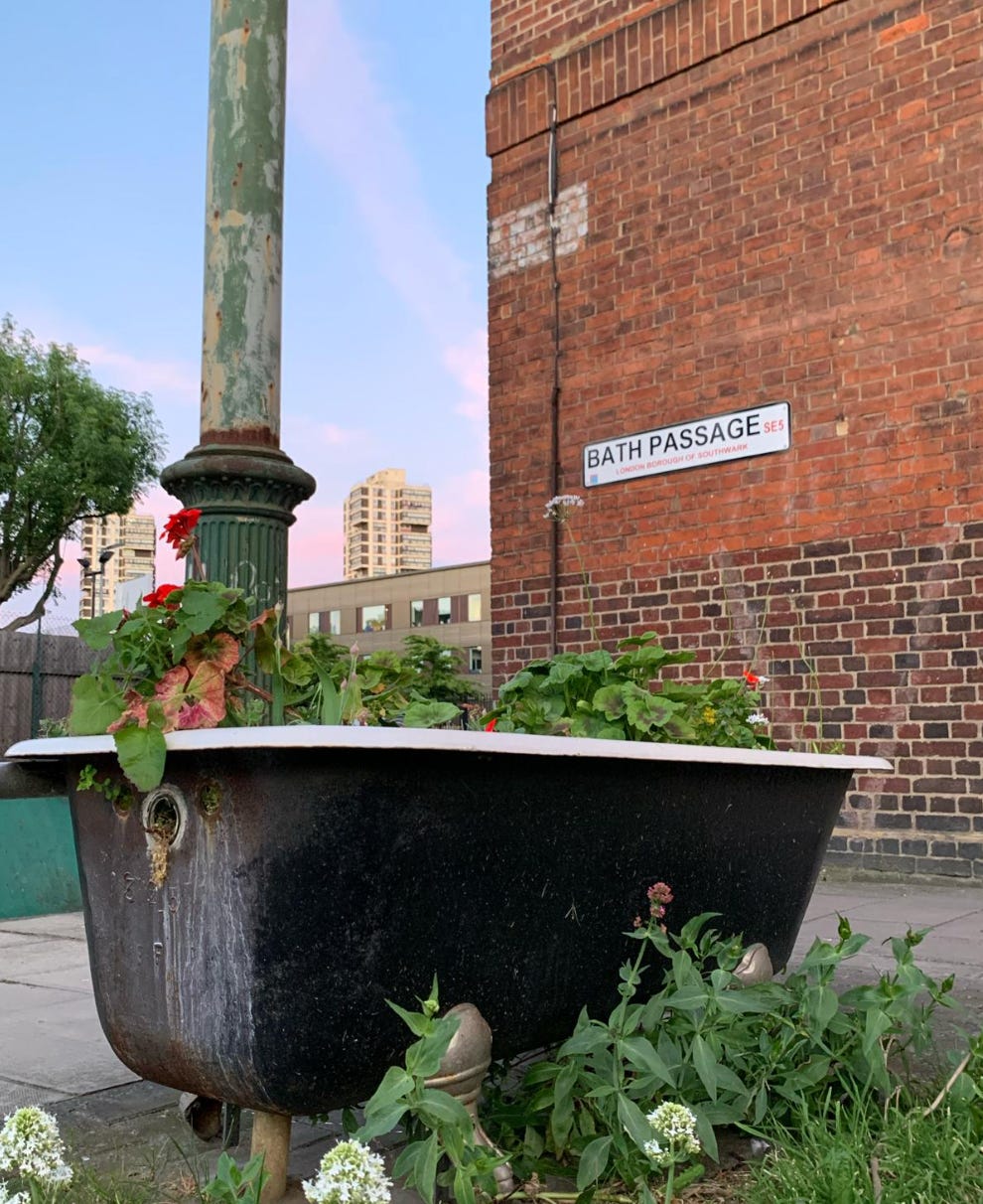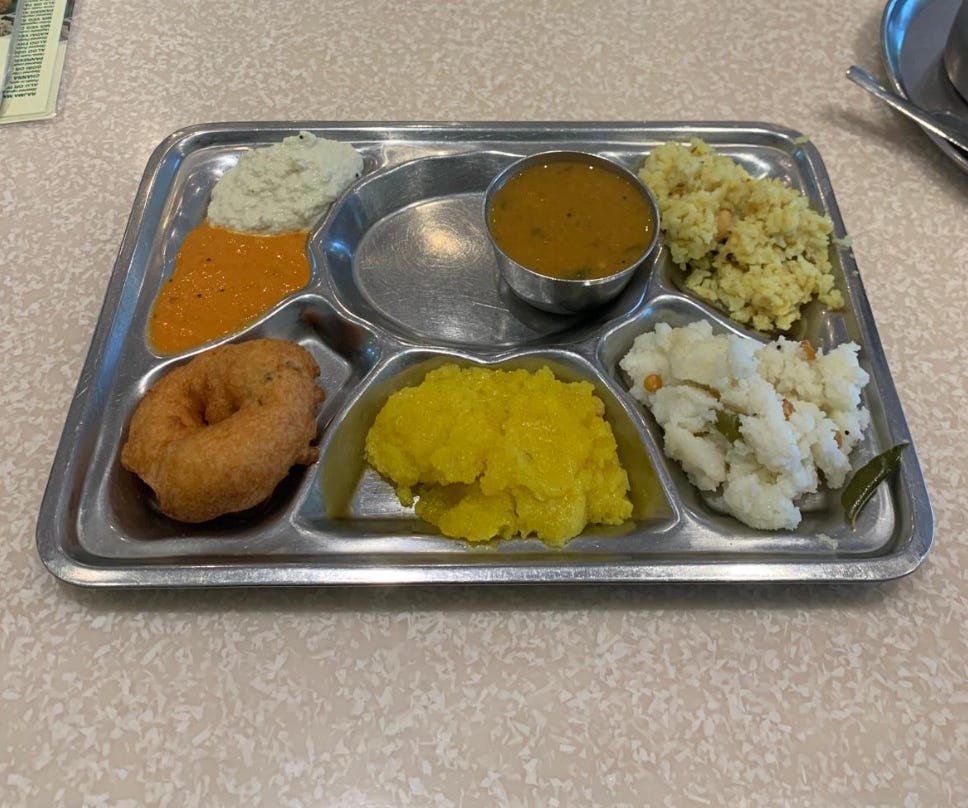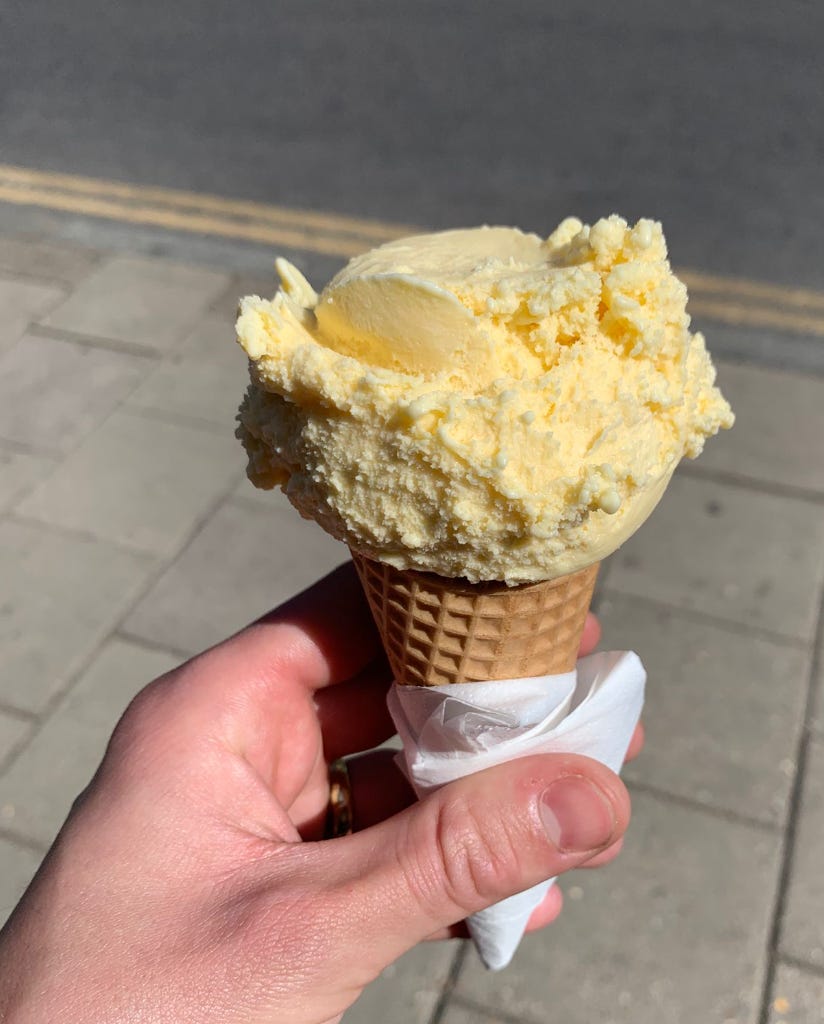Free! Greedy DM with Caffs not Café's"Idiosyncrasies shape where I choose to go or what I write about."I’ve been following Isaac Ramaswami’s, who writes Wooden Cities and runs the Caffs not Cafés Instagram, work for years and admiring his unearthing of London’s idiosyncrasies. His project seemed, at first, to be one of showing, and in showing, protecting the old: old caffs, pie and mash shops, pubs. But as he’s gone onwards, he has become as interested in idiosyncratic immigrant spaces, which are often new. Alongside Vittles, he is part of a critical movement which sees writers engaging with London as a vast and mysterious mass, often - but far from exclusively - using food as a jumping off point. When I moved to the city in 2012 such a movement seemed impossible. Talk was solely about what London had lost: Crossrail (now the Elizabeth Line) was destroying Euston, and much more, the Olympics had laid waste to the East and supercharged gentrification was mopping up whatever was left. In discourse it was a depressing time, and to me deeply alienating: was there even any point in exploring London when all the grown-ups were telling me that it had disappeared? My early and mid-twenties were spent in Shoreditch, perhaps the place in London most wrung out by change, and it was not until I moved to Forest Gate in 2019 that I began to see that London had certainly not disappeared. Living there I began to cycle and - finding my mental health too unsteady for writing - took gigantic rides, mostly throughout the sprawling eastern and northern suburbs, discovering gigantic and strange city, sometimes changing quickly, sometimes the same as it ever was, often quite unbothered by the centre. It was perhaps a little to-do with a Jungian zeitgeist, and more with the pandemic, but many were finding this out as well, and were beginning to challenge the prevailing sentiment that London was finished. They showed that, in fact, London in full swing, churning. Of these others, Isaac is one of the most compelling. We met recently, at the Library where we both work, and cemented our friendship over grilled seafood in a suburban Galician restaurant/cultural centre. Jago - What are you planning to have for dinner? Isaac - I’m going to cook salmon, new potatoes and some kind of green for my wife Hannah and I. I wonder how many thousands of Brits are eating this meal tonight, given the spring weather? Haha yeah, I wish I could say I was eating something more unusual. But it fits into your work - which is an exploration of eating, and of what we could call ordinary eating. In a way! But I would say I’m still mostly led by atmosphere and function rather than food. Though I have been trying to do some more eating-focused stuff lately. I suppose these are all connected too. No I get you, there’s a way in which the food just happens to be there, or is the reason to be there, but it’s not the main attraction. Yeah I’ve seen Ruby Tandoh write about “incidental eating”, which I love as a phrase and is more about chance. I used to choose places largely based on what they looked like, and mostly eat fry-ups. But after I branched out into other types of restaurants and spent so much time in these spaces, I ended up being interested in what makes their food distinctive too. Those idiosyncrasies increasingly shape where I choose to go or what I write about, in the same way as things like crowd, decor and local importance. Though food still isn’t my central preoccupation. Your writing’s concentration on the everything-else-ness is what makes it special. Thanks! What’s an example of a really terrible incidental eating experience in an interesting place? Not incidental eating, but I once had a full English at The Wolseley that arrived cold. Doesn’t surprise me. Yeah, it was a bummer - you can definitely get a far better fry-up for a third of the price. But if I really think about it, most of my less intentional, terrible eating has been at Pret: stressed, in my mid-twenties, during 15 minute lunch breaks at office jobs I hated. And the Pret - the thing missing there is the atmosphere and function you write about. A Pret sandwich would be fine in a nice old caff. Haha yeah good point. What I hate about places like Pret is how they prey on stressed-out people who don’t have the bandwidth to think of anything better. They’re like tourist traps for people who actually live somewhere. You need a bit of mental space to even seek out an independent for lunch. More mental bandwidth! My day job in my late twenties wasn’t as stressful and I was much happier. Part of this was having more normal working hours and with that freedom loads of ideas started coming to me, which I had enough brain power to explore. What was the first place you posted about? Before I did the caffs Instagram I did another one about Victorian sewer ventilation pipes. Apparently they were designed to prevent explosions from gas build-up underground. I was working as a copywriter at the time and I liked the challenge of applying those skills to something so obscure - and trying to convince people that something mundane was actually interesting. Stink pipes of London! Haha yes exactly. First one I posted about was the one with a gold crown in Kennington. Got a pic? Defo somewhere, two secs. Now that’s a handsome pipe! One of the handsomest for sure. That’s what I liked about them - the Victorians really didn’t need to make them so ornate, but they did. I don’t want to get too “the past was better” here, but if you designed and installed one today it would likely be using cheaper, mass-produced materials. There’s no more art to the stink pipe. Have you seen the pump stations around London? So true. I actually haven’t been to any of them, but have been meaning to for years. They look like real cathedrals. My favourite is the one by West Ham… it’s in a crazy Neo-Byzantine style. Beautiful. Did you collect things as a child? What a lovely question. Pokémon cards obviously. Then later I had a collection of G.I. Joes - which I used to put in plastic cups with water in the freezer. And then I’d throw the whole frozen mass against a brick wall outside. And the whole thing would explode everywhere. Would the toys explode too? Or just the ice? Every limb would fly off at all once, it was wild. Did anyone ask why? My dad thought it was a clever innovation and actually encouraged it. I was getting too old for toys and was doing other destructive pre-teen activities like burning stuff with a magnifying glass. Smashing those toys was a bit like playing GTA not to do the mission but to free roam, if you know what I mean. It was honestly so fun. What was your favourite food growing up? Macaroni cheese. My mum used to make a very classic, Good Housekeeping-style one, with slices of tomato on top, and bacon. No breadcrumb crust or discernible connection to Italy or the US. Just white sauce. The tomato was cooked, right? Yeah. And what didn’t you like? I remember finding mushrooms a bit challenging. And being weirded out the first time I saw a mussel. But I made a conscious decision to eat food I found difficult and discovered that I eventually liked everything if I ate it enough. Why? I think my parents encouraged it, and I got the impression it was a good thing to be able to eat stuff like shellfish and not be fussy generally. You haven’t mentioned any South Asian food, though your father is Indian - was it not a big part of growing up? We got Indian takeaways at the weekend and I’ve been lucky enough to go to India every few years from the age of three. But I definitely had a very English upbringing and my mum did a lot more of the cooking at home than my dad. It wasn’t until I was older that I really thought about what I was eating when we went to India - Chennai mostly - and where to seek out Tamil food in London. Because that was different from the food you had at the weekends? Yup. Did you think of them as the same thing? Not entirely. My dad told me that a lot of the takeaways were Bangladeshi-run, but I was definitely an adult when I started to properly appreciate the regional differences between South Asian cuisines. I also just didn’t think that things like idli, rasam, sambar were available in the UK – I saw those as “Indian food in India” – I suppose because my experiences growing up in the suburbs had been so curry house-based. Was looking for Chennai food in London one of the beginnings of you going around the city and exploring? Once I’d spent a year or so really focusing on caffs and other comparable places, like chip shops and pie and mash, I began to see the parallels with newer canteen-like spaces. This coincided with going to areas like East Ham, which was the first place I went with restaurants full of the stuff I’d eaten in relatives’ homes and roadside spots in Chennai. I was already exploring a lot before, but it wasn’t necessarily diaspora-led. Describe the original process! Original process was just like, “choose an area and walk around”. But that didn’t really work. For instance, in an area like Canning Town - although I think there are valuable things there - you can just end up walking along a main road for ages without the promise of something good at the end. So I started to plan two or three places - like a breakfast spot and then a building or gallery. This approach prevented aimless wandering, but also kept room for spontaneity and wandering between points A, B and C. Latest iteration is I visit like five or six places in a day – sometimes more – all relatively nearby, as part of a continuous and interconnected walk. I spend a lot more time researching beforehand, and I’m trying to learn about a broader range of spaces, cuisines and neighbourhoods. I’ve now made it my job basically. So at the weekend I keep it more loose and try to stop things drifting into “work”. I now actually find it quite relaxing to make it up as I go along in areas I already know well. And there’s a fine balance between it being work and being fun - the work is the writing about it, but the process needs to be organic? I agree, but I also quite like being systematic, and making the process into “work” is very productive. I’ve done so much work I didn’t enjoy that this type of work is the dream. It’s a privilege that I can now afford to do this kind of thing on a weekday and treat it as “material” and “research”. Isn’t it lovely, for it to be a job? So good. Just as long as this type of activity doesn’t drift into the periods when I want to recharge. At the weekend I try to restrict my travel to somewhere on a line that connects to where I live. I also usually avoid taking notes at the weekend – but if I walk past somewhere interesting I don’t have time to visit, I definitely write that shit down for later. Never off duty. What’s your favourite place to eat outside London? I’ve had a lot of fun visiting Glasgow and Liverpool. They definitely have a high density of the type of places that interest me. Really want to get to know Paris better too. Also New York. Honestly anywhere. I really want to spend more time in Newcastle, Manchester, Birmingham, Bristol… I recommend Barcelona for the canteens and bars. People tell me this. Very similar interior to the classic caffs. A vein of working class food! What’s something excellent you’ve eaten in the last month? Another thing I like to do at the weekend is visit more contemporary spots that I probably won’t end up writing about. I keep an eye on Soft & Swirly’s Instagram and love getting an ice cream from whatever pop-up they’re doing, as part of a walk. Last one I got was this sheep's yoghurt ice cream when they were at Neal's Yard Dairy on Essex Road. Finally, what are you reading right now? Flaneuse by Lauren Elkin. I actually started reading it a couple of months ago and had to pause because it gave me too many ideas, and I was trying to read it as a relaxing book. So I read The Dutch House by Ann Patchett in between. I’ve just resumed Flaneuse. You're currently a free subscriber to Greed. For the full experience, upgrade your subscription. |




